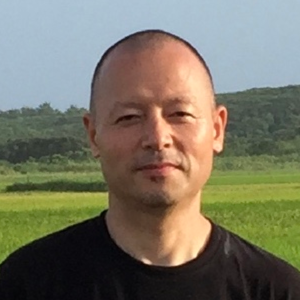「曙光」に寄せられたメッセージ
vol. 7 2018-04-06 0
「Indievisual」編集長のベン・ディマグマリュウさんから「曙光」へのコメントをいただきましたのでご紹介します。
Mr. Ben Dimagmaliw (Editor-in-chief of "Indievisual") gave comment for the film(English below).
日本は、一日に80人前後、年間2万人以上の人々が命を絶つ自殺大国で、G8の先進国の中、第2位です。「平和な国」や「何一つ不自由ない暮らし」とよく思われてる国ですら、こんな悲しい事実があります。何故日本はこんなに多くの人々が自分の命を落とすのでしょうか?通常の理由を含めて、「自殺」は、「責任」又は「迷惑かけない」を正当化した理由で、国民性になってしまっている気がします。そのような考えの自殺願望の人をどう救うでしょうか?自分の命を捨てても良い人を救えるでしょうか?
坂口香津美監督の最新作、『曙光』は実際に存在するNPOをモデルに、ドキュメンタリータッチ溢れるドラマでその活動の難しさに光を投じています。黒沢あすか演じる主人公の文絵は自殺しようとする人々の心から叫びを聞いて、彼らを救う為にたゆまぬ努力をしますが、映画のストーリーが展開していくうちに、重要なことが一つ明らかになります。それは、「生き続ける意欲」だけでは元々の苦悩は取り除けないということです。どんな生き物でも「自分の身を守る」は根本的な本能で、それを失ったら、心と精神は損傷を受けます。それ故に「生き続ける意欲」ではなくて、「人生の困難に立ち向う力」を改めて取り戻すことが重要です。そうしたら、人生の浮き沈みを乗り越えることができます。昔自殺しようとした私にも、今現在それを分かって強く生きています。どんな暗い夜でも、曙光が必ず来ます。
(English)
Japan has one of the highest suicide rates in the world and the second highest among the eight largest economic powers. This is a lamentable statistic for a country that outwardly seems lacking for want, especially compared to less fortunate nations. Yet, suicide has become almost a national character. Beyond the common reasons of overwhelming sadness or hopelessness, also at work are elements idiosyncratic of Japanese culture such as an acute predilection for taking responsibility or a desire for not burdening or inconveniencing others. how does one help people who have not only lost hope, but have rationalized it is their duty to extinguish their own lives?
The protagonist of Sakaguchi Kasumi’s latest film, “Heartbeat”, fights this battle daily. Sparked by a tragedy in her own life, Fumie, played by Kurosawa Asuka, hopes to give value to her own daughter’s suicide by tirelessly working to save people on the verge of taking their own life. It is a demanding, stressful, and sometimes perilous day-to-day struggle to quickly respond to a last cry for help and keep those she rescues safe. But at the beginning of the film, she is challenged by a young girl she saves who says, “I’m not going to commit suicide because you forbid me. So please take away my pain. Can you take away this pain?” And this is the crux of the problem. Is saving people alone enough? What responsibility is a savior obligated to the person he or she saves?
Fumie provides to those suffering from hopelessness, heartache, and isolation a haven of hope, solace, and companionship. The people she saves reciprocate by assisting her in her mission. However, this only provides a temporary respite. As the film progresses, it becomes clear dedicating themselves to saving others from committing suicide does not necessarily alleviate them of their own distresses. The basic instinct of all living things is self-preservation. When this lost, the heart and soul become damaged. In fact, once they come face-to-face again with those lingering emotions, they relapse to thoughts of suicide. Therefore, encouraging them to “go on living” alone is not enough. What is necessary is to instill or recapture the strength to face life and overcome its challenges.
It is difficult for those who have never felt so overwhelmingly burdened that life is no longer worth living to understand such depths of despair, but platitudes such as “life is precious” or “suicide is wrong” does not aid in reclaiming hope. The strength to do so must come from within and not browbeaten from without. As the old adage says “it is always darkest before the dawn” which gives the original Japanese title “Shokko”–meaning ‘the break of dawn’–a greater significance, both for the characters and those who view this meaningful film.
(Ben Dimagmaliw)

 FUNDED
FUNDED


